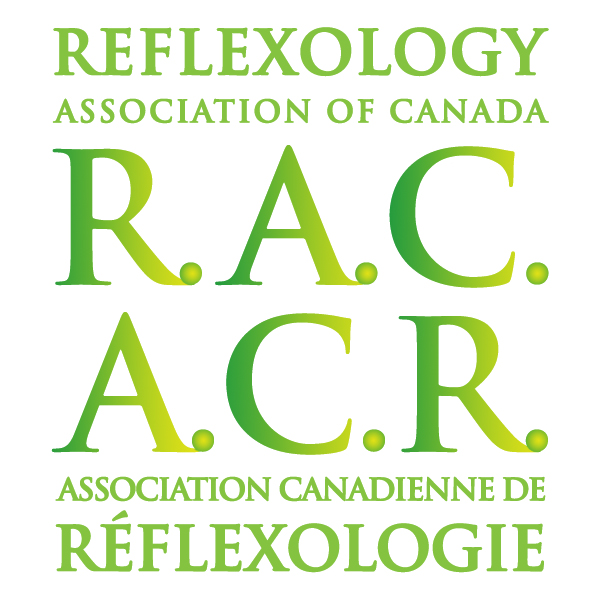Click on the button below to download our Employment Contract Guidelines.
Employment
Contract Guidelines
for Registered Canadian Reflexology Therapists (RCRT™)
Introduction
The Reflexology Association of Canada (RAC) advises that Registered Canadian Reflexology Therapists (RCRT™s) contact an appropriate source (e.g. an employment or labour professional) to discuss specific employment questions or concerns prior to signing a contract of agreement.
These guidelines are intended to help ensure employment contracts for RCRTs™ are consistent with legal requirements and the professional standards set by the Reflexology Association of Canada.
In general, these are some negotiating points to consider:
- RCRTs™ must comply with federal, provincial, and territorial laws in Canada, including labour standards, occupational health and safety regulations.
- The employment contract for the services of a RCRT™ should respect the ethical standards set by the Reflexology Association of Canada.
- Scope of Practice: Employment contracts should define a RCRT™’s specific duties, including the type of reflexology therapy services to be provided (e.g., foot reflexology, hand reflexology), and clarify any limitations or conditions on the scope of practice, ensuring they align with RAC.
- Delegation of Reflexology Therapy: The contract should clarify that RCRTs™ may not delegate Reflexology therapy to untrained or uncertified individuals. All Reflexology care must be delivered personally by the RCRT™ or performed under their direct supervision in accordance with RAC’s professional standards.
- Confidentiality and Client Privacy: The contract must clarify who owns the client records, how they will be handled, and how long they must be retained after the termination of employment. All handling of client records must comply with applicable provincial privacy legislation. The contract should outline procedures for secure storage, restricted access, and confidentiality of all client information.
- Professional Development: Employment contracts should encourage and, where possible, support the ongoing professional development of a RCRT™.
- Liability Insurance: The contract should specify whether the employer provides professional liability insurance or the RCRT™ is responsible for obtaining their own coverage.
- Employment Status: The contract should specify whether the RCRT™ is an employee or an independent contractor, with definitions aligned to Canada Revenue Agency guidelines. Misclassification can have legal and tax implications for both parties.
- Therapist Autonomy: The contract should clearly define the degree of autonomy the RCRT™ has over their work processes.
- Compensation Terms: Employment contracts should clearly define how and when the RCRT™ will be paid (e.g., commission, hourly rate, flat fee), including any deductions, bonuses, or statutory deductions. Payment arrangements should comply with applicable employment standards legislation.
- Dispute Resolution Mechanism: A clear process should be outlined in the contract for resolving disputes such as an internal resolution process, mediation, arbitration, or a designated third-party service.
- Non-Compete and Non-Solicitation Clauses: These clauses must be reasonable in scope and duration.
- Workplace Safety: The contract should ensure that the work environment is compliant with safety and health regulations.
- Therapist Wellness: Employment contracts should support the physical, mental, and emotional wellness of the RCRT™. Reasonable scheduling, adequate breaks, and safe working conditions should be considered to help maintain long-term therapist well-being and fitness to practice.
- Personal Safety: The contract should have provisions for the safety and security of the RCRT™ while on the job (e.g., workplace violence prevention, clear emergency procedures).
- Right to Refuse Services: The contract should include a RCRT™’s ability to refuse services in cases where they believe proceeding with a Reflexology therapy appointment is unsafe or contraindicated due to the client’s health condition.
- Respectful Treatment: The contract should acknowledge that the RCRT™ is entitled to be treated with respect and professionalism in the workplace, with a zero-tolerance for harassment or discrimination.
- Entire Agreement and Amendments: The contract should state that it constitutes the entire agreement between the parties, and any amendments must be made in writing and signed by both parties.
Client Record Ownership and Departures
When a RCRT™ leaves a clinic or wellness practice, the ownership and custody of client records can become a point of contention if not clearly outlined in advance. The Reflexology Association of Canada strongly recommends that this matter be addressed in the employment contract prior to the start of any professional relationship.
Key considerations to include in the contract:
1. Ownership of Records: Clearly state who owns the original client records.
2. Access to Records: The contract should specify that the departing RCRT™ is entitled to retain either the original client records, or at least copies of client records they created, for continuity of care and professional responsibility.
3. Client Consent: If clients wish to continue care with the departing therapist, the employer should accommodate the secure and ethical transfer of relevant records, in compliance with privacy laws.
4. Record Retention: Specify who is responsible for maintaining the records for the required period after the therapist’s departure, and how the records will be securely stored and accessed, if needed.







